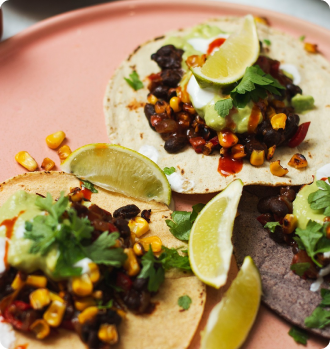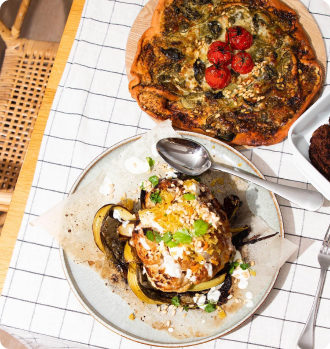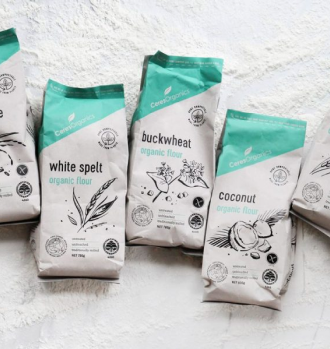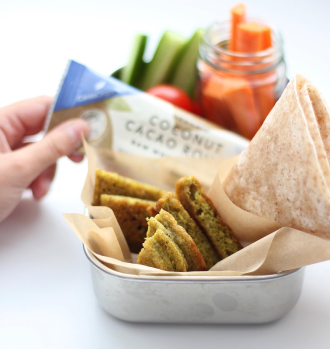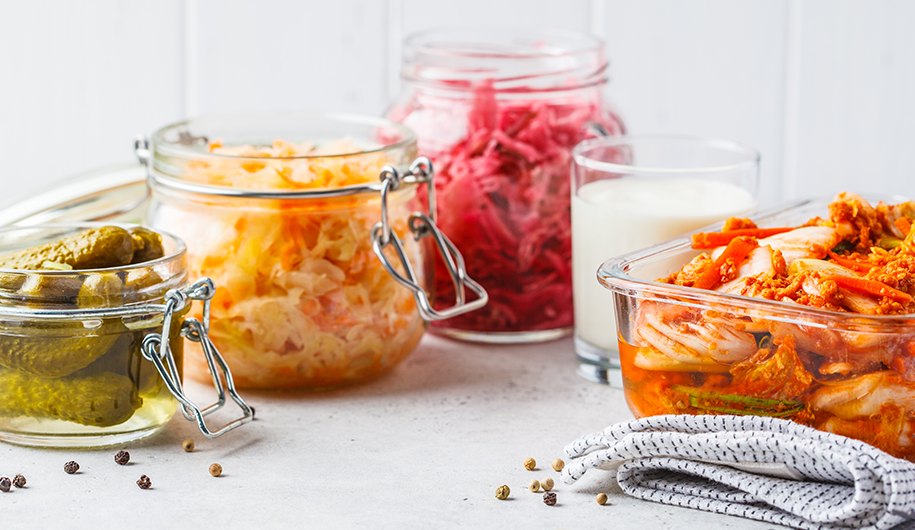
Did you know, probiotics occur naturally in our digestive system already!
What are probiotics?
Probiotics are live bacteria and yeasts keeping the balance between naturally occurring “bad” bacteria and yeasts in our digestive system. We know gut health is important and plays a huge role in keeping us healthy – and new studies suggest that gut bacteria influence almost all aspects of our physiology and biology.
One of the most easily modifiable ways you can help maintain that balance is by what you eat. The bacteria's nutrition is our nutrition, so eating probiotic rich fermented foods – in addition to a whole foods diet can promote beneficial bacteria and keep things in balance. Here’s a list of 5 microbiome friendly foods to get you started!
Miso
Highly rich in nutrients, largely due to the fermentation process, miso is commonly used in macrobiotic cooking as a digestive regulator. Miso has a salty taste and a texture sort of similar to nut butter. Overall, taste and colour varies depending on the ingredients and length of fermentation.
Miso is made by fermenting soybean, barley or brown rice with a fungus, otherwise known as koji. Soy sometimes gets a bad rap, mainly because it is the largest GMO crop - so, to be sure you're avoiding GMO soy, always buy certified organic soy products.
If you’ve only had miso at the sushi spot, here’s how they make it - just add a tablespoon of miso to hot water and you’ve got yourself a probiotic rich soup. If you wanted to make a meal of it, these miso broth bowls are a low calorie, protein and probiotic rich make.
And if you’re vegan, check your labels - fermented bonito or skipjack tuna fish shavings are a key ingredient in more traditional commercial brands of miso. A little while back we worked with our suppliers in Japan to create 3 miso’s. You’ll find them here.
Sauerkraut
Much like supplements, the number of bacteria and strains will differ from brand to brand - and if you’re making your own. Unpasturised sauerkraut will allow for the growth of as many probiotics as possible, but if you’ve only got access to pasteurised, there’s still probiotics in there too.
Thing is you really need to eat sauerkraut on the regular to reap the benefits – so next time you make a veggie burger, throw some kraut in there instead of lettuce, or mix some through a salad… Add kraut to your Buddha bowls.
Kimchi
There’s a reason why the average South Korean consumes kimchi practically every day. Kimchi is a fermented red cabbage made with a mix of salt, vinegar, garlic, peppers and other spices. The process of fermentation gives kimchi its taste of awesomeness while creating lactobacillus bacteria which help balance your gut bacteria.
Not only does kimchi contain loads of probiotics, it contains the powerful antioxidant, vitamin A. 100 grams of kimchi will also give you 18 percent of your required daily vitamin C intake. Like vitamin A, vitamin C is a natural antioxidant, protecting your body’s cells from free radical damage.
Kimchi, like sauerkraut is great in salads, burgers, or on top of the Instagram favourite - smashed avocado on toast. Koreans use kimchi like sauce, on fries. It has less sugar than ketchup, so why not?
Coconut kefir yoghurt
Coconut kefir yogurt is high in protein, is dairy and sugar free and obviously it's loaded with probiotics. To make your own coconut kefir yoghurt you only need coconut flesh, coconut water and coconut water kefir grains. You place the coconut flesh in a mason jar with the kefir grains, and leave it for about 12 hours to ferment. At this point you taste it, and if it’s fermented enough, it’s good to eat! Add it to your smoothies or overnight oats for a probiotic boost.
Coconut water kefir
Water kefir is a great option to dairy-based kefir, which has 10- 12 times the probiotics than say yogurt.
However, one thing to keep in mind about kefir is that is made from yeasts, not just probiotic cultures. Kefir is made from kefir grains which are not grains but merely a cluster of yeasts that produce good bacteria during the culturing. If you’re sensitive or allergic to yeast, then kefir grains are not the goods, coconut yoghurt - not derived from yeast is.
However, if you are not sensitive to yeast, definitely opt for kefir whenever possible. It is one of the most ancient healing beverages to consume and is available as water or coconut kefir if you do not tolerate dairy.
Back in 2008, the Human Microbiome Project set out to classify the human microbiome and figure out how these microorganisms affect our health. These scientists found that although human DNA is 99 percent identical, each person’s microbiome DNA is only about 10 percent identical.
So when it comes to your microbiome, different things will work for different people. So if you do have health issues, check in with a health care professional.



